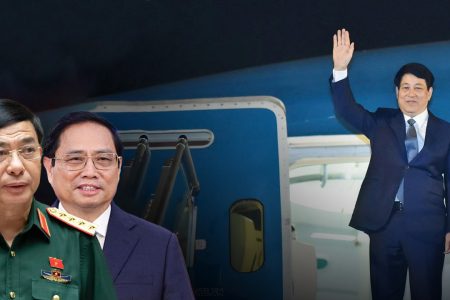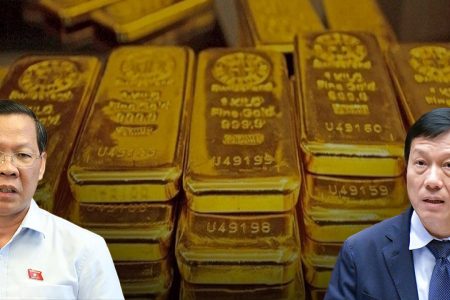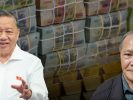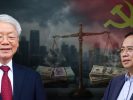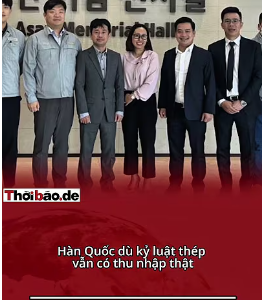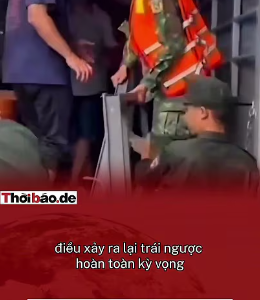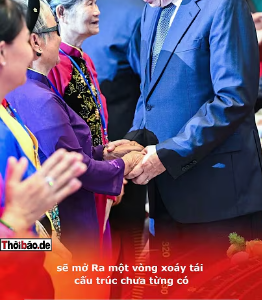
At the end of March, 2023, Japanese Prime Minister Kishida Fumio visited Ukraine (March 21) and Chinese President Xi Jinping visited Russia (March 20). These two near-simultaneous visits by the leaders of the two Northeast Asian economic powers to two rival countries, Russia and Ukraine, have produced two statements with opposing messages. Notably, the joint statement of Japanese Prime Minister Kishida Fumio and Ukrainian President Volodymyr Zelenskyi criticized unilateral actions using force in the East Sea (South China Sea).
After President Xi Jinping finished his visit to Russia (March 22, 2023), a Chinese marine survey ship, which was intruding into Vietnam’s exclusive economic zone, harassed the joint oil and gas exploitation area of Vietnam and Russia at Tu Chinh (Vanguard). On April 6, 2023, Prime Minister Pham Minh Chinh welcomed Russian Deputy Prime Minister Dmitry Chernyshenko and repeated his statement in 2022 when he visited the US „Vietnam does not choose sides but chooses justice and right“ and emphasized strengthen economic cooperation between the two countries. Also on this day, the Vietnamese Ministry of Foreign Affairs said that a Chinese survey ship left Vietnamese waters. These moves raise many issues about Vietnam’s security, national interests and international relations.
For and against the Free and Open Indo-Pacific policy
During Xi Jinping’s visit to Russia, the two countries signed two documents, one is the Joint Statement on Strengthening the Comprehensive Strategic Co-operative Partnership in the „New Era“ and the other is the Joint Statement on the Pre-2030 Development Plan on China-Russia economic cooperation priorities.
On the issue of Russia’s war in Ukraine, the Russia-China statement called for peace but did not mention the issue of Russia stopping its aggression and withdrawing its troops from Ukrainian territory, the Japanese-Ukrainian statement also called for peace, but the peace condition is that Russia respects Ukraine’s sovereignty and territorial integrity by stopping attacks and withdrawing troops from its territory.
In addition to the Ukraine war issue, in the above statements, President Xi Jinping and President V. Putin expressed their opposition to the „Free and Open Indo-Pacific“ policy of the United States. They argue that this policy has a negative impact on peace and security in the region.
Russia and China also „expressed deep concern“ at NATO’s continued strengthening of military security ties with Asia-Pacific countries. They argue that it would be detrimental to regional peace and stability. The statement did not say how such cooperation „harms“ the region.
In the „Free and Open Indo-Pacific“ policy of the US, there is a small program called the „Mekong Partnership-USA“ to help countries in the Mekong sub-region protect the environment, develop sustainable economy, overcoming the consequences when China built 11 hydroelectric dams to keep water upstream of this river.
Meanwhile, in Ukraine, Japanese Prime Minister Kishida Fumio and Ukrainian President Volodymir Zelenskyi also issued a joint statement, including four major items: Solidarity against Russia’s invasion of Ukraine, Cooperation in the context that Japan assumes G7 Presidential, Expanding Bilateral Cooperation, and Cooperation on the Regional and International Stages.
Talking to RFA, Dr. Ha Hoang Hop, researcher and political analyst in Vietnam at the Institute of Southeast Asian Studies (ISEAS) in Singapore, commented:
“Japan is from the Western point of view, and China does not condemn Russia directly and does not participate in sanctions against Russia. Japan’s foreign strategy is consistent with the US and Western strategies for this war, and China has come up with a 12-point peace plan, but this plan Russia thinks is not appropriate at this time and the West has expressed doubts about the feasibility of the plan.“
The final section of the Japan-Ukraine Joint Declaration affirmed the „inseparability of the security of the Euro-Atlantic and Indo-Pacific,“ and declared that the two countries „consensus, working together towards realizing a Free and Open Indo-Pacific (FOIP), inclusive and based on the rule of law.”
Thus, in addition to the issue of the Ukraine war, the Joint Statement of Japan-Ukraine and China-Russia also opposes each other on the Asia – Pacific issue.
Japan and Ukraine support the International Law of the Sea and peace in the East Sea
In the context of supporting a Free and Open Indo-Pacific (FOIP), the Japan-Ukraine Joint Statement, also the issue of the International Law of the Sea and the South China Sea. Prime Minister Kishida and President Zelenskyi “affirm the importance of respecting international law, especially the United Nations Convention on the Law of the Sea (UNCLOS) with provisions on the obligation to resolve disputes by means of peace, upholding the freedom of navigation and overflight.”
After citing the International Law of the Sea as the basis for settling disputes at sea, the two leaders „expressed deep concern about the situation in the East China Sea and South China Sea, strongly opposed any attempt to simply any means to change the status quo by force or coercion. The leaders also emphasized the importance of peace and stability across the Taiwan Strait as an indispensable factor for security and prosperity in the international community. They encourage the peaceful resolution of cross-strait issues.”
Faced with the phenomenon that Ukraine is being invaded by Russia, but still supports Vietnam and small countries in Southeast Asia on the East Sea issue, even though it is only through a joint statement with Japan, Dr. Ha Hoang Hop commented on the calculation of Vietnam’s strategic interests for the Russian war:
“Vietnam continues to wish to end the war in Ukraine and all parties to the table and deal with the consequences of the war. Vietnam continues to pursue a strategy of not choosing sides while the risks of war with Vietnam are still small; In case the danger and risk of war is so great that it is on the verge of war, Vietnam will have to reconsider its strategy of not choosing sides.”
China harasses Vietnam oil and gas project after Xi Jinping visits Russia
After President Xi Jinping finished his visit to Russia on March 22, 2023, a Chinese survey ship operating in the Vanguard area in Vietnam’s exclusive economic zone in the East Sea harassed the oil and gas cooperation project between Vietnam and Russia. China’s behavior was stopped by Vietnamese law enforcement. In this area, the Russian company Zarubezhneft is cooperating with Vietnam to exploit gas and oil.
Then, when receiving Russian Deputy Prime Minister Dmitry Chernyshenko on April 6, 2023 in Hanoi, Prime Minister Pham Minh Chinh repeated his statement in 2022 while visiting the United States, „Vietnam does not choose sides, but choose justice and right“ while emphasizing the agreements between the two countries on „economic cooperation.“
Dr. Ha Hoang Hop commented to RFA that “Prime Minister Pham Minh Chinh wants to imply that Vietnam-Russia economic relations will continue to be expanded and developed under all circumstances.” Regarding the possibility that Russia decided to abandon the oil and gas project managed by Zarubezhneft (like the case Rosneft had to withdraw a few years ago) because of Chinese pressure, Dr. Ha Hoang Hop assessed:
“If Russia abandons the project Zarubezhneft is doing, Vietnam will continue to do it on its own (maybe there will be a new business partner). There is no Southeast Asian country doing business with China in the East Sea. I think Russia only stops mining, when it runs out of gas in the field. Russia received all that Rosneft left behind, everything was still there. We need time to see how China will affect Zarubezhneft.
Vietnam has been doing everything to protect its sovereign rights and jurisdiction in the continental shelf (and the extended continental shelf), international law is the basis of Vietnam to protect its sovereignty and sovereign rights and protect its national interests.”
Meanwhile, Dr. Nagao Satoru of the Hudson Institute, a think tank in Washington DC, told RFA that China’s move to launch survey ships into Vietnam’s exclusive economic zone may reflect a longstanding strategy: fill the power void. As Russia is focusing all its energies on the war in Ukraine and dependent on China for its economy and (disguised) military aid, it is difficult for them to protect their interests in other directions. According to Dr. Nagao Satoru, it was right for Vietnam to rely on the Soviet Union in the past to contain China’s expansion, but now, in the face of Russia’s war in Ukraine, relying on Russia is not an effective strategy.
Thoibao.de (Translated)















